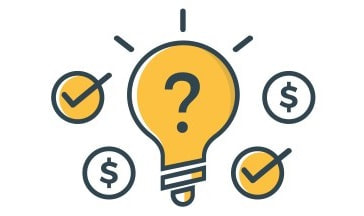Funeral Costs Guide - How Much, How to Cover the Cost, and Everything You Need to Know To Plan
With the average cost of a funeral around $10,000, our guide covers all the options to pay for the costs and ensure your wishes are fulfilled
Updated 18 December 2020
Funeral Costs Summary
Our View: The fact that you’re reading this guide shows initiative – many New Zealanders prefer not to plan for the inevitable. The reality is death is certain, and preparing for the costs in advance is of benefit to everyone. Best of all, it doesn’t need to be expensive.
Our guide covers:
- A funeral in New Zealand typically costs $8,000 to as high as $15,000, but by making sensible decisions this expense can be well planned for.
- Typically, the executor of your estate pays for the funeral from your estate’s proceeds.
- Your will should dictate your final wishes and how the executor should pay for them. If you don't leave a will, the costs will need to be paid for by your family. Our wills guide has more details about the benefits of writing a will.
Our View: The fact that you’re reading this guide shows initiative – many New Zealanders prefer not to plan for the inevitable. The reality is death is certain, and preparing for the costs in advance is of benefit to everyone. Best of all, it doesn’t need to be expensive.
Our guide covers:
Know this First: The Average Cost of a Funeral in New Zealand
The average New Zealand funeral costs around $10,000, but it can be much more or less depending on the arrangements. The total cost will vary based on a variety of factors, including:
Who Pays for the Funeral?
- Your religious beliefs and/or requirements
- Cremation or burial costs
- The type of casket or urn
- The cost of the burial plot and headstone
- The funeral director services
- The religious leader’s services
- The type and amount of flowers
- The type and cost of the memorial
- Any necessary notifications (obituaries and death certificates)
- How the body is transported
- Any musician fees
- Fees for audio or visual presentations during the ceremony
- Printing costs for programs
- Printing costs for thank you cards
Who Pays for the Funeral?
- Typically, the executor of your estate pays for the funeral from your estate’s proceeds.
- Your will should dictate your final wishes and how the executor should pay for them. If you don't leave a will, the costs will need to be paid for by your family. Our wills guide has more details about the benefits of writing a will.
Planning for the Future - How to Cover the Cost of Your Funeral
Funerals are expensive. Planning how your loved ones will pay for yours is important. Here are the most common ways:
- Personal savings account – You can set aside money for your funeral yourself. Set up a separate savings account and make sure the executor of the estate is on it or you direct use of the funds appropriately in your will. If the executor isn’t on the account or you don’t dictate how to use the funds, no one will have access to your savings account to pay for your funeral.
- Prepaid funeral – As weird as it sounds, you can set up your own funeral and pay for it before you die. You work out the arrangement with the funeral parlor regarding how much you pay and at what intervals. This gives you a little say in your funeral and ensures the financial aspect is taken care of before you die.
- Funeral trust – A funeral trust is like a savings account, but it’s locked up until you die. You can open one with as little as $500 and can add money to it whenever you want. The money gets invested and earns interest. You’ll pay a small fee to open the trust and your loved ones will pay a small fee to use the funds. But, the funds are immediately accessible when you die.
- Funeral insurance – This is an insurance policy that you pay premiums on monthly. When you die, your loved ones immediately receive funds to pay for your funeral. Your loved ones can use the lump sum payout to cover the funeral expenses as well as any other final expenses you left behind.
Why do Funerals Cost so Much?
- Funerals aren't as complicated as weddings, but there is a lot of work involved. And, worst of all, if you don’t pre-plan your final arrangements, your loved ones are left with big decisions.
- A casket alone can cost several thousand dollars, not to mention the burial plot, embalming, and headstone. Most people want a celebration of life or a way to memorialize you as well. The services and details that go into the funeral add up fast.
- Before you decide how much money to set aside for your funeral, make sure you carefully detail how you want your funeral handled. Don’t leave your loved ones guessing – if you want something simple, let them know that. If you want something extravagant, make sure you leave money behind to cover it.
Ways to Reduce the Cost of a Funeral
Funerals almost always cost a lot, but there are ways to reduce the costs, especially if you keep things simple. Pre-planning is the best way to keep the costs down. You won’t be as emotional if you plan a funeral before you need it so you’ll make smarter financial choices at the time.
Even if you plan a funeral after someone dies, you can minimize costs by:
Even if you plan a funeral after someone dies, you can minimize costs by:
- Keep ‘optional’ arrangements to a minimum. For example, flowers are nice, but you don’t need to overdo it. The reality is gatherers don't notice or appreciate them, so anything beyond 'standard' casket flowers may be unnecessary.
- Ask about ‘cheaper times’ to hold the services. Weekends usually cost the most, but each funeral home has a schedule of prices. If Thursday morning is cheaper, it's worth keeping in mind the cost difference.
- Look at different funeral home prices now. You can make an informed decision while you're alive, avoiding the need for your relatives to make a decision.
- Ask about prepaid discounts. Some funeral homes let you prepay for your funeral, locking in today’s prices, which are likely lower than future prices.
- Choose less a less expensive casket or urn. By doing so, you can save a significant amount of money.
- Minimize the services you include (religious leaders, funeral directors, caterers, etc.).
Should I Buy Funeral Insurance?
Funeral insurance takes the financial burden off your loved ones during a trying time, but it has its downsides too. Our Funeral Insurance guide comprehensively outlines the pros, cons and costs of policies.
Before you choose funeral insurance, know its full cost. Ask the following:
Before you choose funeral insurance, know its full cost. Ask the following:
- Are there capped premiums? Without capped premiums, you could pay more premiums than the full cost of a funeral. Capped premiums ensure you only pay the full amount of a funeral. If you hit that point, your premiums stop, but your coverage lasts forever.
- Will your loved ones receive the premium amount you paid or the full policy amount? While the full policy amount is normal, it's essential to check the exact cover that will be provided upon death.
- Do the premiums increase as you get older? Stepped up premiums increase as you age, often become unaffordable. What's worse is that all the previous policy premium you paid is 'lost', meaning you don't get any future benefit. Find a policy with level premiums that don’t change over time so you can budget accordingly.
Cost of a Funeral - Frequently Asked Questions
To help plan for a funeral, we've included the most popular queries raised by New Zealanders.
Who pays for a funeral if there is no money set aside?
If no one prepared for the death and the executor doesn’t have the funds, the responsibility usually falls on the family. In some cases, the family may get government assistance (via Work and Income's Hardship Assistance and Urgent Costs). It’s means-tested, which means they determine if the deceased had assets and/or the family can afford it based on their income.
How long after a person's death is the funeral held?
There is no law dictating when you must hold a funeral. Most people hold a funeral three days after the death, but if there are circumstances that make you want to have it sooner or later, that’s a possibility too. It’s best to plan the funeral and allow enough time for loved ones to make it in rather than rushing it.
What is the most expensive part of a funeral?
The casket is usually the most expensive part of a funeral, as they can cost upwards of $10,000. The next most expensive part is the professional services and burial plot fees.
What is a prepaid funeral?
A prepaid funeral is a funeral you pay for while you’re alive. It takes the financial burden off your loved ones and ensures that there is enough money to cover your final arrangements.
Prepaying your funeral protects your family from a financial burden later on. The benefits include locking in a funeral at today's prices, planning your funeral in detail exactly allows you to plan and pay for your funeral in advance which helps ease the financial and emotional burden on your family. Best of all, funds are held safely in trust for the sole purpose of paying for your funeral. Many prepaid options offer payment plans. The disadvantage is that you can only purchase a prepaid funeral with funeral directors who offer this as an option, but many do so shopping around and coming shouldn't be difficult.
One option, and arguably the most robust, is a prearranged funeral plan available through members of the Funeral Directors Association of New Zealand. It's called The Funeral Trust and puts you in control of the service you want so you can pay for the costs upfront, on your terms.
Prepaying your funeral protects your family from a financial burden later on. The benefits include locking in a funeral at today's prices, planning your funeral in detail exactly allows you to plan and pay for your funeral in advance which helps ease the financial and emotional burden on your family. Best of all, funds are held safely in trust for the sole purpose of paying for your funeral. Many prepaid options offer payment plans. The disadvantage is that you can only purchase a prepaid funeral with funeral directors who offer this as an option, but many do so shopping around and coming shouldn't be difficult.
One option, and arguably the most robust, is a prearranged funeral plan available through members of the Funeral Directors Association of New Zealand. It's called The Funeral Trust and puts you in control of the service you want so you can pay for the costs upfront, on your terms.
How much does a burial plot cost?
Plot prices vary by council, but on average they range from $650 in Central Hawke’s Bay and as high as $6,600 in Auckland.
How much does a cremation cost?
The exact cost varies by area and cremation service, but on average, families pay $700 - $1,000 for private crematoriums and up to $900 for council crematoriums.
Is embalming required?
If you’re trying to cut costs and the funeral is very quickly following the death, you may skip embalming. There’s no law requiring it, but if the funeral will be delayed, embalming is almost always recommended.
When does Work and Income provide assistance with funeral costs?
Work and Income helps low-income families pay for funeral arrangements, but the income threshold is $29,000 for single people and increases from there for couples and families. The grant is up to $2,030.
Do you have to use a funeral director?
You can organize a funeral yourself without the help of a funeral director. If you prefer help, shop around and determine which director offers the best prices and includes the services you need. Make sure he/she is aware of your budget, so you don’t spend more than intended.
How much do burial fees cost in my town or city?
The links below outline the costs - these resources are provided each region's city or district council.
Related guides




